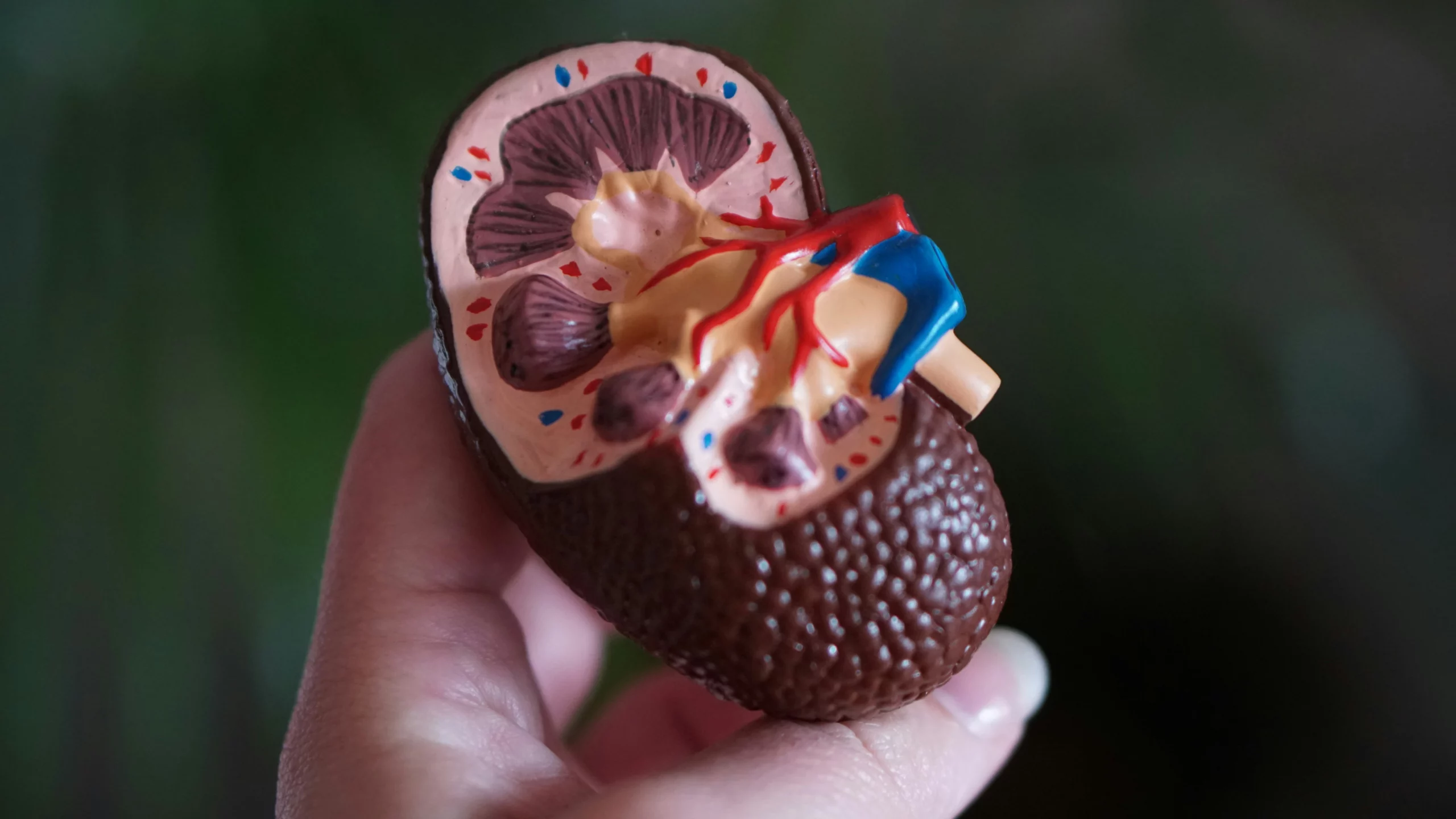Menopause often brings about unexpected changes, one of which may be an increase in body odour. This shift, though entirely natural, can be attributed to fluctuating hormone levels and symptoms such as night sweats and hot flashes, which create an environment conducive to the growth of odour-causing bacteria.
While this may be a common experience during menopause, there are effective strategies available to manage and reduce body odour, promoting comfort and confidence.
Table of Contents:
- Drink More Water
- Sleep In Cooling Sheets
- Find the Right Deodorant
- Wear Breathable Fabrics
- Shower More Regularly
Drink More Water
Hydration plays a crucial role in the body’s overall function and becomes particularly significant during menopause, especially in the context of managing body odour. As hormonal changes during this stage of life can intensify sweating, proper hydration is key to mitigating the associated odours.
Adequate water intake aids the body in its natural detoxification process. When the body is well-hydrated, it can more effectively flush out toxins through sweat, reducing the buildup of bacteria that often leads to unpleasant odours. This process is particularly important during menopause, when the frequency and intensity of sweating may increase due to hot flashes and night sweats. In this context, hydration not only helps regulate body temperature but also ensures that sweat is less likely to become a medium for bacterial growth.
On the contrary, dehydration can exacerbate body odour. When the body lacks sufficient water, it struggles to eliminate toxins efficiently. This can result in more concentrated sweat, which is more likely to produce a stronger odour. The connection between hydration and body odour underscores the importance of maintaining regular fluid intake, particularly during menopause.
Incorporating regular water consumption into daily routines is a simple yet effective strategy. For those who find it challenging to drink plain water, flavored, sugar-free options can make it easier to meet hydration needs without adding unnecessary calories or sugars. These alternatives can enhance the appeal of drinking water, thus supporting the body’s ability to manage both temperature and odour.
Sleep In Cooling Sheets
Night sweats are a frequent and often disruptive symptom of menopause, and they can play a significant role in the development of body odour. These episodes of intense sweating during sleep not only disturb rest but also create an environment where bacteria can thrive, leading to unpleasant odours. One effective strategy to manage this issue involves the use of cooling sheets, which can help mitigate the impact of night sweats on body odour.
Cooling sheets, typically made from breathable and moisture-wicking materials like Tencel or bamboo, offer a practical solution for managing the discomfort and consequences of night sweats. These fabrics are specifically designed to regulate body temperature by allowing heat to dissipate more efficiently, which helps keep the skin cool throughout the night. Additionally, their moisture-wicking properties draw sweat away from the skin, reducing the dampness that can encourage bacterial growth.
The reduction in moisture and temperature provided by cooling sheets not only improves comfort but also plays a critical role in minimizing the conditions that lead to body odour. By keeping the skin drier and cooler, these sheets help prevent the buildup of sweat that, when left on the skin, can break down and produce unpleasant smells.
Find the Right Deodorant
As menopause brings about significant hormonal changes, it often prompts a reassessment of various personal care routines, particularly the use of deodorants. The hormonal fluctuations characteristic of this stage can alter the body’s sweat composition, often resulting in a more pronounced and persistent odour. Addressing this change effectively may require adjustments to the type of deodorant used and how it is applied.
During menopause, the body’s sweat glands can become more active, and the sweat produced may contain higher levels of certain compounds, making it more potent and prone to causing odour. Traditional deodorants, while effective for many, may contain ingredients such as aluminum-based compounds or synthetic fragrances that some may wish to avoid due to concerns about skin sensitivity or long-term health effects. For those looking for alternatives, natural deodorants offer a promising solution. These products often leverage plant-based ingredients and essential oils, which provide antibacterial properties that target the root cause of body odor—bacteria that thrive on sweat.
Natural deodorants are formulated to neutralize odours without relying on synthetic chemicals. Ingredients like baking soda, magnesium, and activated charcoal are commonly used for their odour-absorbing qualities, while natural extracts like tea tree oil or lavender add a pleasant scent and provide additional antibacterial benefits. However, switching to a natural deodorant can require an adjustment period, as the body may take time to adapt to the new product, especially if transitioning from an antiperspirant.
The effectiveness of any deodorant, whether traditional or natural, also depends on its application. Regular use is key to managing menopause-related body odour effectively. Applying deodorant in the morning as part of a daily routine helps to start the day with a layer of protection against odour. For those experiencing particularly intense sweating or unexpected changes in body odour, reapplication during the day may be necessary to maintain freshness. This approach ensures that the deodorant continues to combat odour throughout the day, even in the face of fluctuating hormone levels.
Wear Breathable Fabrics
The management of body odour during menopause is closely linked to the choice of clothing materials. As hormonal changes heighten the body’s sensitivity to temperature fluctuations and sweating, the fabrics worn can either exacerbate or alleviate the effects of these symptoms. Synthetic fabrics, commonly used in many modern garments, often lack the breathability needed to manage moisture effectively. These materials can trap sweat against the skin, creating an environment where bacteria thrive, ultimately leading to increased body odour.
In contrast, natural fabrics such as cotton, linen, and bamboo offer significant benefits for those experiencing menopausal symptoms. These materials are highly breathable, allowing air to circulate freely around the body. This airflow helps to regulate body temperature, reducing the intensity and duration of sweating episodes. Moreover, these fabrics are adept at wicking moisture away from the skin, which not only keeps the body drier but also minimizes the conditions that allow odour-causing bacteria to proliferate.
Cotton, for example, is known for its softness and breathability. It absorbs moisture well, making it a good choice for everyday wear, especially in warmer climates or during physical activities. Linen, with its lightweight and quick-drying properties, is particularly effective in hot and humid conditions, providing comfort and reducing the risk of overheating. Bamboo fabric, which has gained popularity for its sustainability, is naturally moisture-wicking and also possesses antibacterial properties, making it an ideal choice for managing both sweat and odour.
These natural fabrics are especially beneficial during periods of physical exertion or in warmer weather, when the body is more likely to sweat. By choosing garments made from these materials, individuals can maintain a cooler, drier environment on the skin, significantly reducing the likelihood of developing body odour. Additionally, the comfort and breathability of these fabrics contribute to overall well-being, helping to ease some of the discomforts associated with menopause.
Shower More Regularly
Frequent showering plays a crucial role in managing body odour during menopause, a time when hormonal changes often lead to increased perspiration. As the body undergoes these shifts, the potential for sweat to produce a stronger and more persistent odour increases, making regular hygiene practices even more important.
Showering not only removes sweat but also helps to eliminate the bacteria that thrive in moist environments. These bacteria are the primary culprits behind body odour, as they break down sweat into compounds that emit unpleasant smells. By showering regularly, particularly with a gentle, pH-balanced body wash, individuals can effectively target and reduce these bacteria, thereby maintaining a sense of freshness throughout the day.
The choice of body wash is also significant. A product that is specifically formulated to combat odour-causing bacteria can extend the benefits of showering, helping to keep the skin clean and odour-free for longer periods. pH-balanced body washes are particularly advantageous as they maintain the skin’s natural acidity, which serves as a barrier against bacteria and other irritants. This is especially important during menopause when the skin may become more sensitive due to hormonal changes.
Incorporating a morning shower into the daily routine can be particularly effective in managing body odour. Night sweats, a common symptom of menopause, often leave the skin damp and prone to bacterial growth by morning. A quick shower upon waking not only refreshes the body but also removes any sweat and bacteria that may have accumulated overnight, preventing the development of odour as the day progresses.
For those who engage in physical activity or experience hot flashes during the day, additional showers may be necessary. These brief but regular hygiene practices can help to continuously manage sweat and odour, providing an ongoing sense of cleanliness and comfort.













